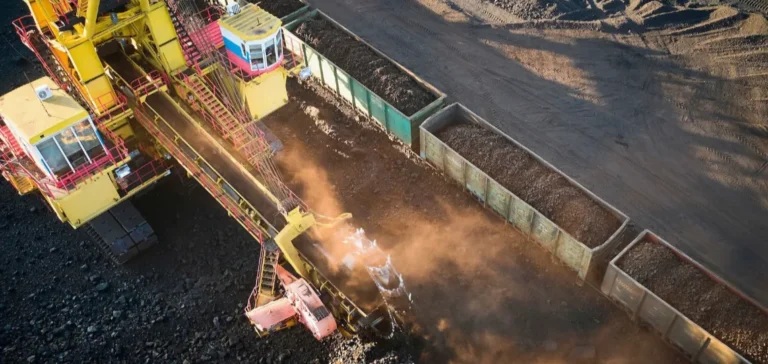Mining conglomerate Elga expects the Pacific Railway, a new strategic railway line for coal transport in Russia’s Far East, to reach an annual capacity of 30 million tons in 2026. This milestone is part of Russia’s broader logistics expansion to support energy exports to Asia-Pacific markets.
A private corridor between Yakutia and the Sea of Okhotsk
The 531 km line crosses the Republic of Sakha (Yakutia) and the Khabarovsk region to connect the Elga coal deposit with a maritime terminal near Cape Manorsky. Including sidings and stations, the total length of the network reaches 626 km. According to Elga, the project was completed within tight deadlines under significant logistical and climatic challenges.
In 2025, the infrastructure will operate in test mode to verify system stability, assess flows and optimise operational procedures. Currently, around 2,000 railcars travel along the line each day. The projected capacity is expected to be achieved after this testing phase.
An integrated and self-financed railway project
Investments in the construction of the Pacific Railway amounted to RUB146.6bn ($1.8bn), in line with initial estimates. No budget overruns have been reported. The infrastructure is fully owned and operated by Elga, ensuring direct control over the coal’s transport to port facilities.
The line provides an alternative to Russia’s federal transport corridors, which are often congested. It enables Elga to secure coal exports by bypassing structural bottlenecks.
A lever for exports to Asian markets
With capacity dedicated to thermal coal transport, the Pacific Railway is part of Russia’s strategy to expand its reach into East Asian markets. The Manorsky port connected to this line offers direct access to maritime routes to China, Japan and South Korea. No details have yet been disclosed regarding the allocation of future volumes to these destinations.
The full commissioning of the corridor is scheduled to coincide with increased extraction capacity at the Elga site. The group aims to strengthen the competitiveness of its coal flows amid strong regional demand and reconfigured supply chains.






















